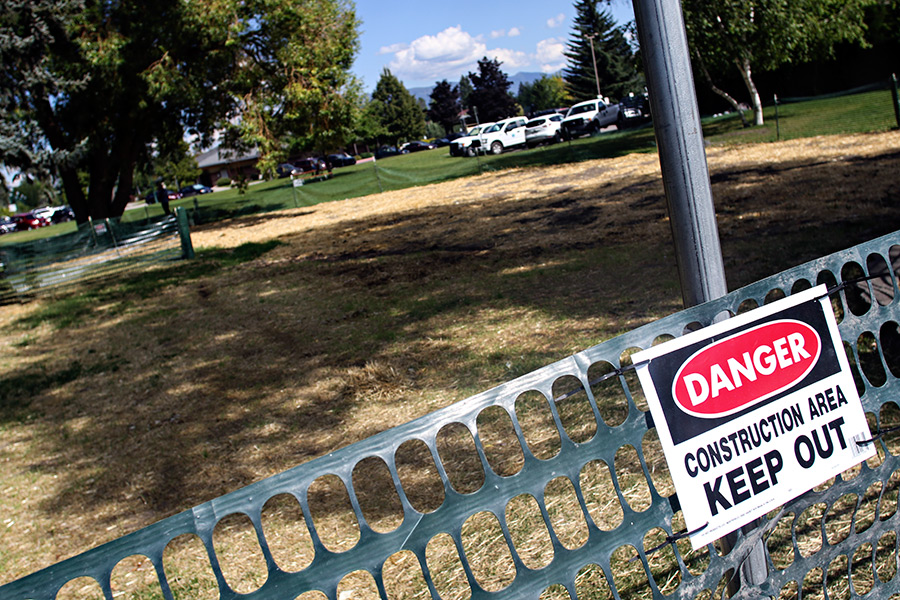The Whitefish City Council isn’t veering from its plans to demolish the city parks and planning building in Depot Park, although an option to lease the property to generate revenue remains on the table.
Demolition of the building, located in the southwest corner of the park, is the course of action called for in the Depot Park Master Plan, and city council reaffirmed its recommendation to remove the building in a 4-3 vote on July 5.
In the same vote, the council also decided the city should accept proposals from groups interested in leasing the space for a five-year term, agreeing that the city will accept applications for the next four months, after which it could reconsider its decision to permanently remove the building.
Mayor John Muhlfeld broke the tie on the motion to consider lease proposals, with councilors Frank Sweeney, Jen Frandsen and Katie Williams voting in favor. Councilors Pam Barberis, Andy Feury and Richard Hildner were in opposition.
The decision to entertain the proposals came after some city officials said the Depot Park building could be a source of revenue for the city. City staff estimated a lease on the building could generate as much as $40,000 in revenue annually.
Whitefish’s Depot Park master plan calls for removing all existing structures within the park, but during discussion earlier this year the council mulled the idea of saving the building and leasing it out to bring in an estimated $35,000 to $40,000 in annual revenue.
The city bought Depot Park in 2008-09 for $3.8 million in two transactions using tax-increment fund revenue.
The former Depot Park Master Plan Committee met in April to consider the proposal, but did not reach a consensus about keeping the building.
The pond at Depot Park was recently removed to make way for green space, and Hildner said the building was an impediment to the future of the parkland.
“I think the idea for parklands is one that is part and parcel for not only this community but really the preservation of parklands as part of our genetics as citizens of the United States,” Hildner said. “I think it is incumbent on us as elected officials to consider the alternatives but I want to come down on the side of future generations who will be able to enjoy this open space in the center of our community.”
